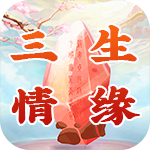1. 關于should句子
should 一詞在中學英語課本中出現頻率很高。
它的用法靈活、含義豐富,因而一直是歷年高考關注的熱點。現將其具體用法分述如下: 一 . should 作為助動詞 shall 的過去式,可以在間接引語中與第一人稱主語搭配,表示過去將來時間。
例如: The group leader announced that we should (= would ) begin to work soon. 小組長宣布:我們不久就開始工作。 A week ago, I told him that I should (= would) go to Beijing the next day. 一個星期以前,我告訴他我第二天就去北京。
二 . should 作為情態動詞,通常用來表示現在或將來的責任或義務,譯作“應該”、“應當”,這時它可以和 ought to, be supposed to 互換使用。例如: You should (= are supposed to ) complete your test in time. 你們應該按時做完你們的實驗。
You should (= ought to ) tell your mother about it at once. 你應該立即把此事告訴你媽媽。 In sum, theory should be combined with practice. 總之,理論應該與實驗相結合。
三 . should 作為情態動詞,可以用在條件狀語從句中,表示語氣較強的假設,譯作“萬一”、“竟然”,這時也可將 should 置于從句之首,即將 should 放在主語前面,而省略從屬連詞 if .例如: If you should fail to come, ask Mrs Chen to work in your place. (= Should you fail to come, ask Mrs Chen to work in your place. ) 萬一你來不了,就叫陳夫人代替你。 If anyone should come, say I am not at home. (= Should anyone come, say I am not at home. ) 萬一有人來訪,就說我不在家。
If it should rain tomorrow, I wouldn't go. (= Should it rain tomorrow, I wouldn't go.) 萬一明天天下雨,我就不去了。 四 . should 作為情態動詞,可以表示謙遜、客氣、委婉之意,譯為“可……”、“倒……”。
例如: I should say that it would be better to try it again. 我倒是認為最好再試一試。 You are mistaken, I should say. 據我看,你搞錯了。
He should expect their basketball team to win the match. 他倒是希望他們的籃球隊贏得這場比賽的勝利。 Should you like some tea ? 你可喜歡喝茶? 五 . should 作為情態動詞,可以用來表示意外、驚喜或者在說話人看來是不可思議的。
尤其在以 why, who, how 等開頭的修辭疑問句或某些感嘆句中常常譯為“竟會”、“居然”。例如: How should I know it ? 我怎麼會知道這件事? Why should you be so late today ? 你今天怎麼來得這麼晚? When I went out, whom should I meet but my old friend Xiao Li ! 當我出去時,想不到竟會碰見我的老朋友小李! I don't see any reason why he shouldn't be happy. 我不明白為什麼他居然不愉快。
六 . should 作為情態動詞,可以用來表示有較大可能實現的猜測、推論,通常譯為“可能”、“總該……吧”,相當于 be expected to .例如: They should be home by now, I think. 我想現在他們總該到家了吧。 The report was written after a careful investigation, so it should be reliable. 這份報告是經過周密調查后才寫成的,所以應該是可靠的。
七 . should 作為情態動詞,用在由 so that, for fear that, lest 引導的目的狀語從句和 in case (that) 引導的條件狀語從句中,有“能夠”、“可能”、“會”之意。例如: They got up early so that they should (= could/ might) catch the first bus in time. 他們起得很早以便能及時趕上頭班公交車。
He is working hared for fear that he should fall behind others. 他努力工作,唯恐落在別人后面。 We went over the document again and again lest we should miss any of the main points. 我們把文件看了一遍又一遍,唯恐忽略了其中的什麼要點。
He took an umbrella in case (that) it should rain. 他帶了一把雨傘,以防天下雨。 八 . should 作為情態動詞,可以用于下列虛擬語氣句中: 1. 用在表示與將來事實相反的條件狀語從句中,構成“ If …… should (do sth)……, …… would/ could/ might (do sth.) …… ”句式。
例如: If it should (或 were to ) rain tomorrow, the sports meeting would be put off. (= Should it rain tomorrow/ Were it to rain tomorrow, the sports meeting would be put off.) 如果明天天下雨,運動會就會延期舉行。 2. 用在 suggest (propose), arrange, plan, decide,, advise, order, demand, request, desire, insist 等表示“建議”、“要求”、“命令”、“決定”、“安排”、“計劃”、“主張”的動詞后面接的賓語從句中。
這里的 should 也可以省略。例如: He suggested/ proposed/ demanded/ advised that they (should) read the rules carefully. 他建議 / 提議 / 要求 / 勸告他們要仔細閱讀這些規則。
The doctor ordered that she (should) stay in bed for another week. 醫生囑咐她再臥床休息一個星期。 He insisted that we (should )take up the matter at the meeting. 他堅持要我們在會上提出這個問題。
3. 用在“ It is desired/ suggested/ requested/ ordered/ proposed/ decided ”之后由 that 引導的主語從句中, should 也可以省略。例如: It is requested that Miss Yang (should) give a performance at the party. 人們要求楊小姐在聚會上表演一個節目。
It has been arranged (planned) that they (。
2. 關于健康主題should的句子10個
You should eat more vegetables希望您多吃蔬菜You should get more fresh air 希望您多呼吸新鮮空氣You should get vitamins多吃維他命You should eat medicine吃些藥You should have a rest, it's good for your body.休息一下對你的身體好You shouldn't work too hard不要太累了You should be happy應該高興一點You should work out every day, it's good for you.每天鍛煉對你身體有好處You should eat more apples.多吃蘋果You should be healthy,你應該健康一點以上都是自己想的。
希望你喜歡如有不滿請追問求及時采納。
3. 【含有“should”的句子
助詞 v.aux. 1.(shall的過去式,表示過去將來)將We hoped that we should be able to do that. 我們希望我們能這樣做. 2.(表示語氣較強的假設)萬一,竟然If the car should break down on the way, you would have to walk back. 萬一汽車中途拋錨,你就得走回來. 3.(表示可能性、推測、推論或期待)可能,該She should be here any minute. 她該馬上就到. Dinner should be ready by now. 此刻晚飯應該做好了. 4.(表示義務、責任)應該,應當You should do as she says. 你應當照她說的去做. He should work harder. 他應該更加努力. You should help your mother with the housework. 你應該幫你母親做家務. 5.(表示委婉、謙遜)可,倒6.(表示感情、意志等)竟然會;應該I'm sorry it should be this way. 很遺憾,事情竟會是這個樣子. It's strange that he should be absent. 真奇怪,他竟會缺席. You shouldn't have told him about it. 你不該把這件事告訴他的. 7.(表示建議、命令、決定等)應該,必須Crime should be punished. 犯罪應受懲罰. 8.(表示目的)會,可以He stood away so that we should enter the room first. 他讓開一步,讓我們先進屋. 9.(表示結果、意愿等)就,該10.(表示征求同意等)可以,該Who should I see about my schedule? 關于我的日程該和誰商討?。
4. 關于should句子
should 一詞在中學英語課本中出現頻率很高。
它的用法靈活、含義豐富,因而一直是歷年高考關注的熱點。現將其具體用法分述如下: 一 . should 作為助動詞 shall 的過去式,可以在間接引語中與第一人稱主語搭配,表示過去將來時間。
例如: The group leader announced that we should (= would ) begin to work soon. 小組長宣布:我們不久就開始工作。 A week ago, I told him that I should (= would) go to Beijing the next day. 一個星期以前,我告訴他我第二天就去北京。
二 . should 作為情態動詞,通常用來表示現在或將來的責任或義務,譯作“應該”、“應當”,這時它可以和 ought to, be supposed to 互換使用。例如: You should (= are supposed to ) complete your test in time. 你們應該按時做完你們的實驗。
You should (= ought to ) tell your mother about it at once. 你應該立即把此事告訴你媽媽。 In sum, theory should be combined with practice. 總之,理論應該與實驗相結合。
三 . should 作為情態動詞,可以用在條件狀語從句中,表示語氣較強的假設,譯作“萬一”、“竟然”,這時也可將 should 置于從句之首,即將 should 放在主語前面,而省略從屬連詞 if .例如: If you should fail to come, ask Mrs Chen to work in your place. (= Should you fail to come, ask Mrs Chen to work in your place. ) 萬一你來不了,就叫陳夫人代替你。 If anyone should come, say I am not at home. (= Should anyone come, say I am not at home. ) 萬一有人來訪,就說我不在家。
If it should rain tomorrow, I wouldn't go. (= Should it rain tomorrow, I wouldn't go.) 萬一明天天下雨,我就不去了。 四 . should 作為情態動詞,可以表示謙遜、客氣、委婉之意,譯為“可……”、“倒……”。
例如: I should say that it would be better to try it again. 我倒是認為最好再試一試。 You are mistaken, I should say. 據我看,你搞錯了。
He should expect their basketball team to win the match. 他倒是希望他們的籃球隊贏得這場比賽的勝利。 Should you like some tea ? 你可喜歡喝茶? 五 . should 作為情態動詞,可以用來表示意外、驚喜或者在說話人看來是不可思議的。
尤其在以 why, who, how 等開頭的修辭疑問句或某些感嘆句中常常譯為“竟會”、“居然”。例如: How should I know it ? 我怎麼會知道這件事? Why should you be so late today ? 你今天怎麼來得這麼晚? When I went out, whom should I meet but my old friend Xiao Li ! 當我出去時,想不到竟會碰見我的老朋友小李! I don't see any reason why he shouldn't be happy. 我不明白為什麼他居然不愉快。
六 . should 作為情態動詞,可以用來表示有較大可能實現的猜測、推論,通常譯為“可能”、“總該……吧”,相當于 be expected to .例如: They should be home by now, I think. 我想現在他們總該到家了吧。 The report was written after a careful investigation, so it should be reliable. 這份報告是經過周密調查后才寫成的,所以應該是可靠的。
七 . should 作為情態動詞,用在由 so that, for fear that, lest 引導的目的狀語從句和 in case (that) 引導的條件狀語從句中,有“能夠”、“可能”、“會”之意。例如: They got up early so that they should (= could/ might) catch the first bus in time. 他們起得很早以便能及時趕上頭班公交車。
He is working hared for fear that he should fall behind others. 他努力工作,唯恐落在別人后面。 We went over the document again and again lest we should miss any of the main points. 我們把文件看了一遍又一遍,唯恐忽略了其中的什麼要點。
He took an umbrella in case (that) it should rain. 他帶了一把雨傘,以防天下雨。 八 . should 作為情態動詞,可以用于下列虛擬語氣句中: 1. 用在表示與將來事實相反的條件狀語從句中,構成“ If …… should (do sth)……, …… would/ could/ might (do sth.) …… ”句式。
例如: If it should (或 were to ) rain tomorrow, the sports meeting would be put off. (= Should it rain tomorrow/ Were it to rain tomorrow, the sports meeting would be put off.) 如果明天天下雨,運動會就會延期舉行。 2. 用在 suggest (propose), arrange, plan, decide,, advise, order, demand, request, desire, insist 等表示“建議”、“要求”、“命令”、“決定”、“安排”、“計劃”、“主張”的動詞后面接的賓語從句中。
這里的 should 也可以省略。例如: He suggested/ proposed/ demanded/ advised that they (should) read the rules carefully. 他建議 / 提議 / 要求 / 勸告他們要仔細閱讀這些規則。
The doctor ordered that she (should) stay in bed for another week. 醫生囑咐她再臥床休息一個星期。 He insisted that we (should )take up the matter at the meeting. 他堅持要我們在會上提出這個問題。
3. 用在“ It is desired/ suggested/ requested/ ordered/ proposed/ decided ”之后由 that 引導的主語從句中, should 也可以省略。例如: It is requested that Miss Yang (should) give a performance at the party. 人們要求楊小姐在聚會上表演一個節目。
It has been arranged (planned) 。
5. 關于健康主題should的句子10個
A close mouth catches no flies.
病從口入。
An apple a day keeps the doctor away.
一天一蘋果,不用請醫生。
An ounce of prevention is worth a pound of cure.
預防為主,治療為輔。
A sound mind in a sound body.
健全的精神寓于健康的身體。
Early to bed and early to rise makes a man healthy, wealthy and wise.
早睡早起身體好。
Prevention is better than cure.
預防勝于治療。
Reading is to the mind while exercise to the body.
讀書健腦,運動強身。
Time cures all things.
時間是醫治一切創傷的良藥。
The first wealth is health .(Ralph Waldo Emerson , American thinker)
健康是人生第一財富
Early to bed and early to rise , makes a man healthy , wealthy and wise .(Benjamin Franklin , American president)
早睡早起會使人健康、富有和聰明
A light heart lives long .(William Shakespeare , British dramatist)
豁達者長壽
Sloth , like rust , consumes faster than labor wears .(Benjamin Franklin , American president)
懶惰像生銹一樣,比操勞更能消耗身體
6. Should用于什麼句子里
shouldn't you
以should 開頭的反義疑問句的句子結尾:
肯定的話:shouldn't ……?
否定的話:should……?
要看主句的肯定還是否定了
希望可以幫助@你
追問:
還有什麼其他的特殊情況嗎
回答:
以should 開頭的反義疑問句的句子結尾:
肯定的話:shouldn't ……?
否定的話:should……?
要看主句的肯定還是否定了
希望可以幫助@你

















